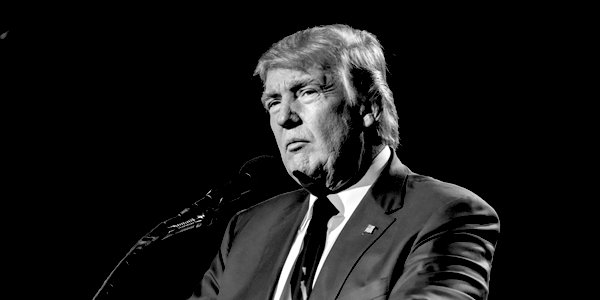DONALD Trump was always going to rip up the world economic order when he was elected for a second time. Anyone with a basic understanding of the President appreciates that he has the unique desire and ability to change the global landscape with the stroke of a pen.
Recent developments are emblematic of Trump’s psyche. A man who operates on his own terms and with the express intention of establishing his own agenda, his foray into the world of tariffs has proved his ability to place a stranglehold on the established way of thinking and operating.
On what became known as ‘Liberation Day’, Trump unveiled a package of reciprocal tariffs across the world in an attempt to address the US’s trillion-dollar trade deficit. This was quickly followed by a decision to press pause on the project, seeing a 90-day window where countries, except China, would be subject only to a 10 per cent universal tariff rather than more specific and targeted taxation.
This 90-day pause is likely to be nothing more than a hiatus, rather than a precursor to a major rethinking of the President’s strategy. As recently as Monday, Trump said that no country was ‘off the hook’ when it comes to reciprocal tariffs, and we should widely expect global trade to become increasingly uncertain.
In the broadest of terms, tariffs are entirely unfavourable but in the case of the United Kingdom could present a unique economic opportunity – if the Prime Minister was able to find a backbone. Original tariffs saw the UK hit with 10 per cent tariffs, compared with competing economies such as the EU (20 per cent), Japan (24 per cent), Switzerland (31 per cent) and China (34 per cent). It is not a stretch to anticipate that we are likely to return to a situation where the UK is subject to tariffs but enjoys a competitive advantage over its unfortunate neighbours.
Surely any opportunistic and, dare I say it, entrepreneurial government would leverage this to our advantage rather than use the media as a mouthpiece to whine about it. We could return to the international economic stage as a manufacturing hub, with companies enjoying significant savings investing in products made in the UK.
Starmer should now be privately meeting executives from major international corporations, touting his competitive advantage and forging deals that will benefit this country as we plot forward a new course. Whether he is unwilling to do so, or unaware of how to go about it, Starmer is instead patting his own back for making minor tweaks to the cost of importing canned pineapples and plywood.
It is clear that the UK, should tariffs return to pre-pause levels, would have a bargaining chip over the rest of the world, and quite importantly, the EU. We always have been and can now underscore our position as an invaluable part of the European economy, one that is far more important to the EU than they are to us.
Touting a competitive advantage on the international stage, alongside being paired with fewer regulations, lower taxes and planning reform could be the perfect opportunity to rebuild and reset the British industrial base. Alas, we can probably look forward to the opposite happening as the Labour Party, as many warned, continue to pursue a high tax, low growth economy.
Change should not always bring panic. We have had a series of reactionary and adversarial leaders in this country, unwilling and unable to see the bigger picture. Barriers to trade may at first glance look like a negative, yet with a different mindset and plan, could be turned into a major asset for this economy.











